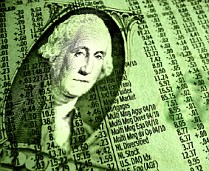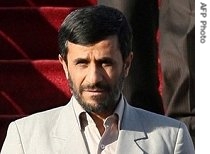2007年VOA标准英语-US City Expected to Block Money to Firms Linked
搜索关注在线英语听力室公众号:tingroom,领取免费英语资料大礼包。
(单词翻译)
By Brian WagnerMiami
11 July 2007
The U.S. city of Miami Beach is to vote on whether to block public pension funds from investing in firms linked to the governments of Iran and Sudan. In Miami, VOA's Brian Wagner reports officials are expected to approve the ban intended to pressure the countries that U.S. officials have named as state sponsors of terrorism.
 |
Under the ban, public-pension officials will identify international companies that are involved in the military or oil sectors7 in Sudan, or in Iran's energy sector6, and cut those investments.
State Senator Ted1 Deutch drafted the state law, and says the restrictions8 are intended to go beyond U.S. policies that limit the activities of American companies.
"It would focus on those foreign companies who are not subject to American sanctions, who currently have made the decision that it is more important to them to seek the extra dollar by investing in Iran and helping9 Iran develop nuclear weapons," he said.
 |
| Mahmoud Ahmadinejad (file photo) |
The Florida law is one example of how U.S. states are trying to raise pressure on Iran and Sudan, as well as other U.S.-designated state sponsors of terrorism: Cuba, North Korea, and Syria.
The director of investment research firm Divest13 Terror, Christopher Holt, has helped several states to draft similar policies, but he says placing restrictions on state pension systems is only the first step. He says one proposal in the state of Louisiana would create a list of investment indices that include companies linked to state sponsors of terrorism, and make the list available to the general public.
"Once a terror-free index is formed, the possibility exists that mutual14 funds available to individual investors15 like you and me will be formed, so that you and I can invest terror-free," he said.
Holt said much of the public support for these measures comes from moral outrage over atrocities16 blamed on state sponsors of terrorism, and is not based on foreign policy decisions made in Washington.
He adds that the spending bans may have limited impact, because foreign oil companies in Europe, China and elsewhere find it profitable to deal with Iran and Sudan.
"They [companies] know exactly what they are doing," he added. "They have made it their marketing17 plan to pursue these rogue18 nations, because they know that the U.S. companies cannot."
Holt says it is the responsibility of investors and officials in other nations to draft measures or exert pressure against business with ties to state sponsors of terrorism.
 收听单词发音
收听单词发音 




